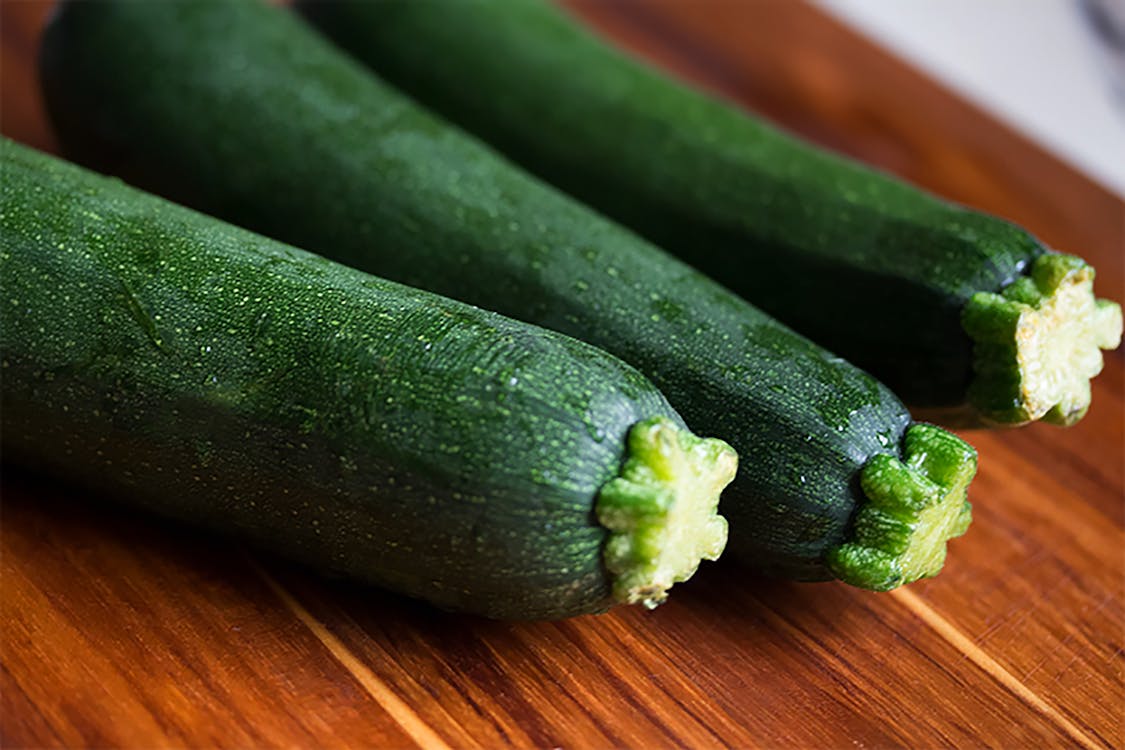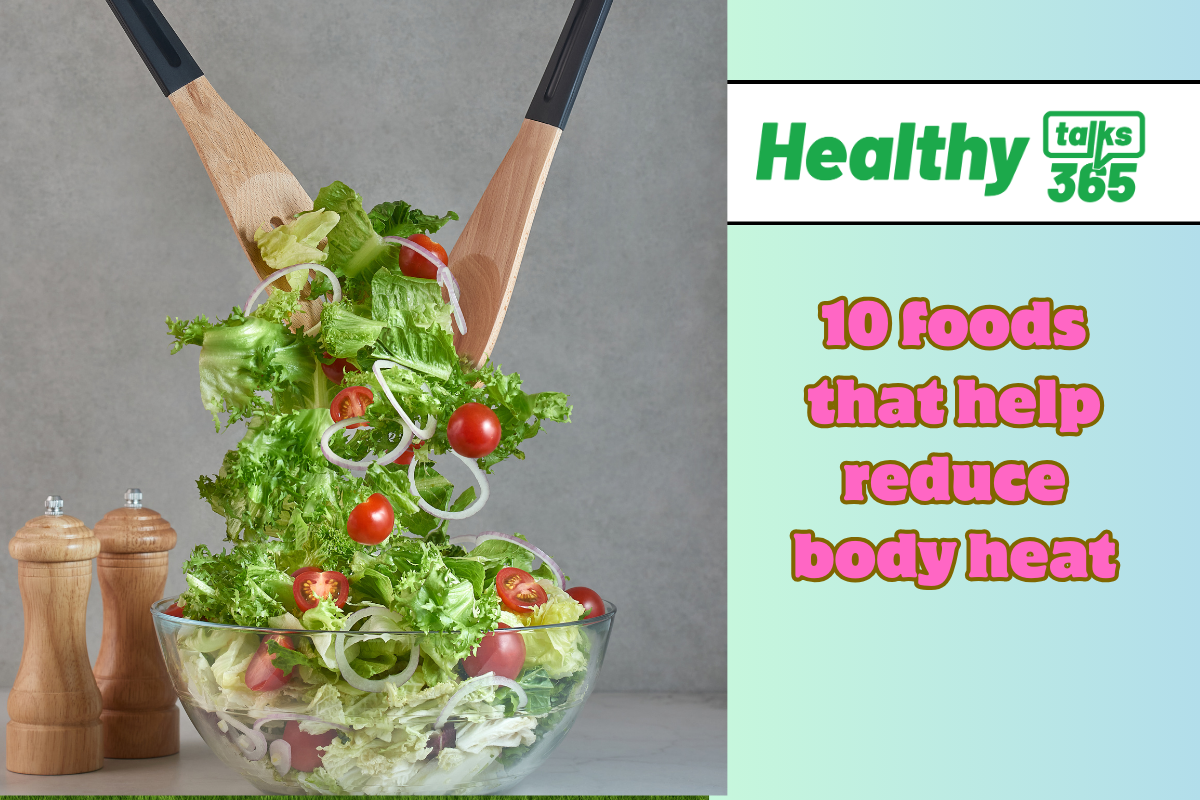10 foods that help reduce body heat
1. Watermelon helps in reducing body heat
Watermelon has long been celebrated for its ability to cool the body, particularly during hot summer months.
With its high water content and refreshing taste, watermelon provides instant relief from heat and dehydration.
Watermelon is packed with electrolytes like potassium and magnesium, which help regulate body temperature and maintain fluid balance.
It contains compounds like citrulline, which have been shown to have a cooling effect on the body by promoting blood flow and vasodilation.
The abundance of vitamins and antioxidants in watermelon supports overall health and immunity, further enhancing its cooling properties.
Read Also:
Quick and Healthy Breakfast Ideas for a Busy Morning
2. Cucumber keeps your body cool
Cucumbers are renowned for their ability to help regulate body temperature and keep you cool, especially during hot weather.
Their high water content, around 95%, makes cucumbers incredibly hydrating, helping to replenish fluids lost through perspiration and keeping the body temperature in check.
Cucumbers contain electrolytes such as potassium, magnesium, and calcium, which play a vital role in maintaining fluid balance and supporting optimal cellular function.
Cucumbers are low in calories and carbohydrates, making them an excellent choice for staying cool without adding extra heat to the body.
Cucumbers are rich in vitamins, particularly vitamin K and vitamin C, which contribute to overall health and well-being.

3. Coconut water reduce body heat
Coconut water is renowned for its ability to lower body temperature, making it a popular choice for staying cool and hydrated in tropical climates.
With its electrolyte-rich composition, coconut water helps replenish essential minerals lost through sweat, restoring balance and aiding in temperature regulation.
Coconut water contains natural sugars and carbohydrates, providing a quick source of energy without causing a spike in body heat.
The presence of antioxidants in coconut water helps combat oxidative stress and inflammation, contributing to overall well-being and comfort.
Coconut water is a natural source of hydration, with a composition similar to that of human plasma, making it easily absorbed and effective at cooling the body from within.
4. Mint has a cooling effect on the body
Mint is renowned for its remarkable ability to impart a refreshing and cooling sensation when consumed.
The menthol compound found in mint leaves stimulates cold-sensitive receptors in the skin, triggering a perception of coolness.
The aroma of mint has a psychologically cooling effect, promoting a sense of relaxation and comfort.
Mint leaves contain menthol, which not only provides a cooling sensation but also acts as a natural decongestant, relieving nasal congestion and respiratory discomfort.
Mint possesses anti-inflammatory properties, which can help soothe irritation and inflammation, further enhancing its cooling effect on the body.
5. Yogurt plays a major role in body heat reduction
Yogurt is revered for its potential to help lower body temperature, making it a valuable addition to cooling diets worldwide.
With its cooling and soothing properties, yogurt has been traditionally used in various cultures to combat heat-related discomfort and promote overall well-being.
The probiotics found in yogurt support gut health, which can indirectly influence body temperature regulation by enhancing digestion and nutrient absorption.
Yogurt is rich in calcium and other minerals that contribute to maintaining electrolyte balance, essential for regulating body temperature.
Additionally, the high protein content in yogurt provides sustained energy without causing a significant increase in metabolic heat production.
6. Celery is a good food for maintaining body temperature
Celery, with its high water content and crunchy texture, is often touted as a beneficial food for regulating body temperature.
Its hydrating properties help replenish fluids lost through sweat, aiding in cooling the body during hot weather or physical activity.
Moreover, celery is rich in electrolytes like potassium and sodium, which play a crucial role in maintaining fluid balance and supporting proper temperature regulation.
Celery contains antioxidants and anti-inflammatory compounds that may help mitigate heat-related stress and discomfort.
The fiber content in celery supports digestive health, ensuring efficient nutrient absorption and promoting overall well-being, which can indirectly influence body temperature regulation.

7. Green leafy vegetables help in cooling down the body
Celery has long been celebrated as a natural aid in regulating body temperature due to its unique composition and hydrating properties.
With its high water content, celery helps keep the body hydrated, which is essential for maintaining a stable body temperature, especially during hot weather or physical exertion.
Additionally, celery is rich in electrolytes like potassium and sodium, which play a vital role in fluid balance and temperature regulation within the body.
The fiber content in celery supports healthy digestion, ensuring that nutrients are properly absorbed and utilized, which can indirectly impact body temperature regulation.
Celery contains antioxidants and anti-inflammatory compounds that may help reduce inflammation and stress on the body, contributing to overall temperature regulation and comfort.
Read Also:
Tips for a Good Night’s Sleep: Creating a Relaxing Bedtime Routine
8. Citrus fruits reduce body heat to a great extent
Citrus fruits are often praised for their ability to help lower body temperature significantly, offering a refreshing and hydrating solution during hot weather.
With their high water content and invigorating flavors, citrus fruits like oranges, lemons, and limes provide instant relief from heat and dehydration.
Moreover, citrus fruits are rich in electrolytes like potassium and magnesium, which play a vital role in regulating fluid balance and supporting proper temperature control within the body.
The natural acids found in citrus fruits, such as citric acid, can help promote perspiration, aiding in the body’s cooling mechanism.
Citrus fruits are packed with vitamins, particularly vitamin C, which boosts immunity and supports overall health, contributing to a balanced body temperature.
9. Cilantro helps in reducing body heat
Cilantro, also known as coriander leaves, is renowned for its potential to help lower body temperature and provide relief from heat-related discomfort.
With its cooling and refreshing properties, cilantro has been traditionally used in various cuisines and herbal remedies to combat elevated body heat.
Cilantro contains essential oils and compounds such as linalool and geraniol, which have natural cooling effects on the body.
Cilantro is rich in antioxidants and vitamins, including vitamin C and vitamin K, which support overall health and well-being, contributing to the body’s ability to regulate temperature.
Additionally, cilantro is believed to have detoxifying properties, helping to eliminate toxins and excess heat from the body, thus promoting a balanced internal environment.

10. Pomegranate has a positive effect on body heat
Pomegranate, with its vibrant red seeds and tangy-sweet flavor, is believed to exert a beneficial influence on body temperature regulation.
Rich in antioxidants like polyphenols and flavonoids, pomegranate is renowned for its ability to combat oxidative stress and inflammation, factors that can contribute to elevated body heat.
It contains compounds such as punicalagins and ellagic acid, which have been studied for their potential to support cardiovascular health and improve circulation, thereby aiding in temperature regulation.
Pomegranate is a good source of vitamins and minerals, including vitamin C, vitamin K, and potassium, which contribute to overall well-being and may help maintain a balanced body temperature.
The high water content of pomegranate seeds provides hydration, helping to cool the body and replenish fluids lost through perspiration.




